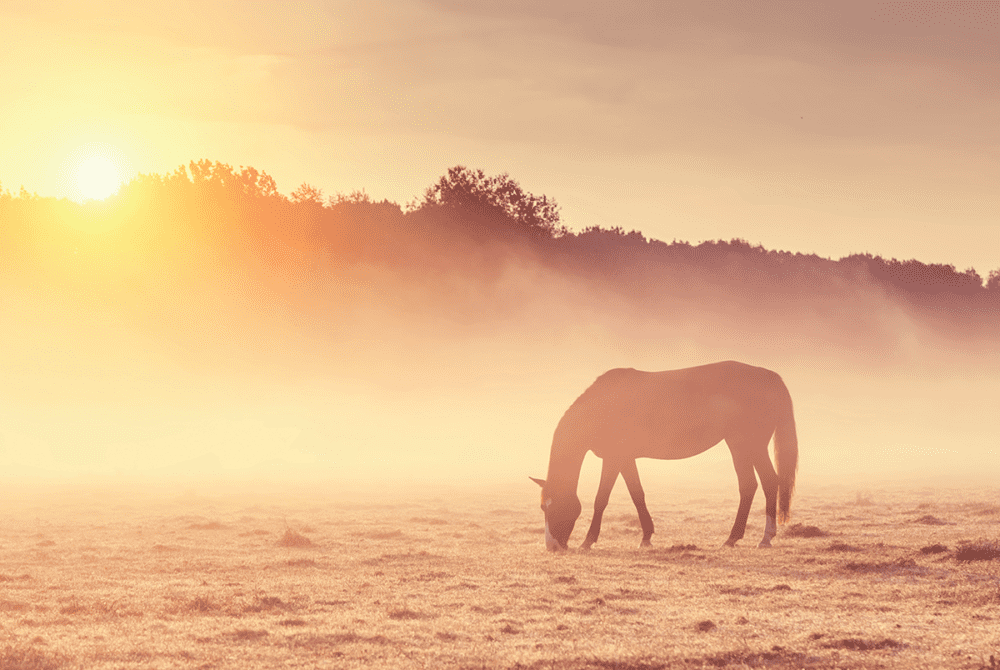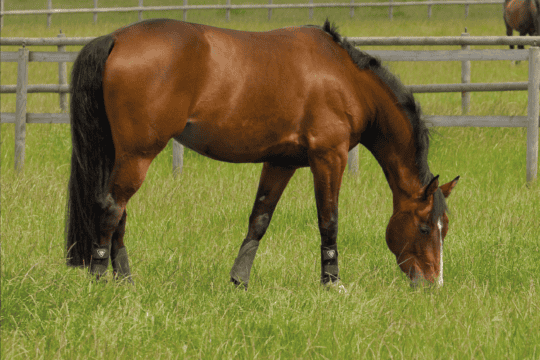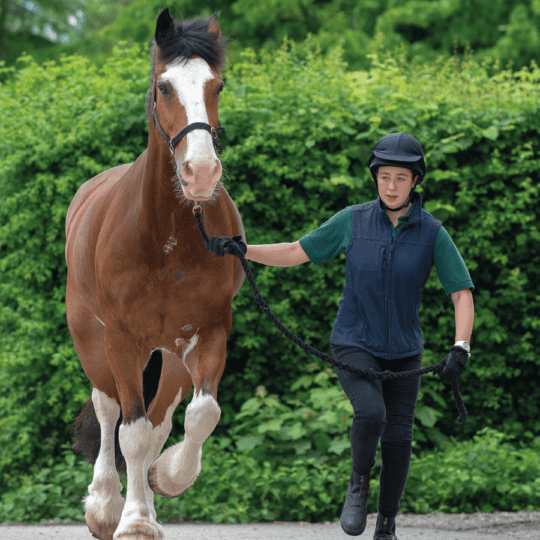Keep on top of your horse’s bodyweight this winter
Posted 3rd November 2021
Learn all you need to know about keeping on top of your horse’s bodyweight, so he stays in peak condition this winter

A change in season often means a new routine for many horses, and winter’s no exception. Reduced turnout hours, poorer grass quality and lower levels of work all have an impact on a horse’s nutritional requirements. However, if you’re the owner of a horse who tends to drop weight and condition during this time, you may feel like you’re in an uphill struggle to keep him looking his best. On the other hand, if your horse lives off fresh air, you’ll be faced with a different set of challenges trying to shift some weight while still meeting his nutritional needs. No matter your horse’s individual requirements, here are some essential tips on how you can bring your horse out of winter in prime condition, ready for the season ahead.
Forage around
Regardless of your horse’s weight and workload, forage should always form the basis of his diet – ideally in ad-lib quantities if he isn’t overweight. Forage provides fibre, which is vital for a horse’s digestive system. It’s recommended that a horse should receive at least 1.5% of his bodyweight in forage on a dry matter basis daily. This equates to a minimum of 7.5kg of dry matter for a 500kg horse each day.
The challenge comes when trying to meet these requirements in a good-doer without him becoming overweight and, conversely, how do we help poorer doers make the most of their forage to help them maintain their weight? The answer is in choosing the right type.
DID YOU KNOW?
The digestibility of a forage is determined by the type and age of the plant at the time of harvest. Older plants contain higher levels of an indigestible substance called lignin, and this significantly reduces the digestibility of a forage.
In balance
Bucket feeds are a valuable way to provide your horse with the additional vitamins and minerals he needs that he won’t get from forage alone. What goes into his bucket over winter is determined by his workload and weight status.
Poor-doers
A common concern for horses who need help maintaining weight over winter, or are in regular work, is how to provide sufficient calories while avoiding extra fizziness. Feeds that are based on slow-release energy sources, such as fibre and oil, are most suitable. It’s ideal to combine more digestible sources of fibre, such as alfalfa, grasses and sugar beet, alongside additional oil.
A balancer or vitamin and mineral supplement can be used to balance the ration, too. For horses who have a limited appetite and need to gain weight, mixes and cubes offer a palatable, concentrated solution.
Good-doers
Overweight horses and good-doers only require the essential nutrients that are commonly lacking in grass and forage. This typically includes the trace minerals copper, selenium and zinc, plus vitamin E. Those on restricted grazing and soaked hay may equally miss out on essential amino acids. You can make sure your horse is getting the extra nutrients he needs by feeding a low-calorie pelleted balancer.
Grab your copy of Winter Horse&Rider on sale, 4 November 2021 to gain all the knowledge you need to keep your horse’s weight managed well during the winter mo










